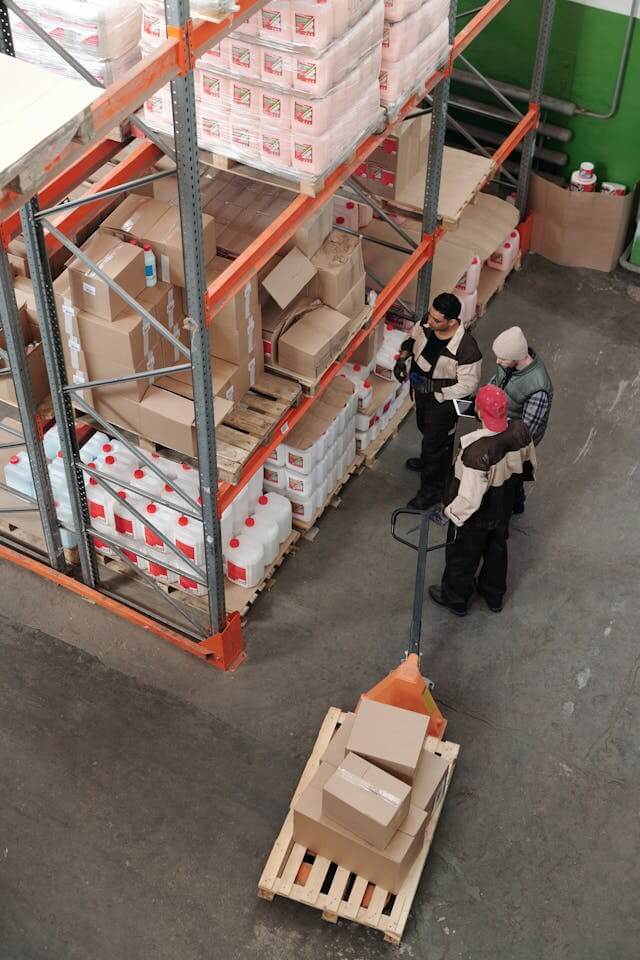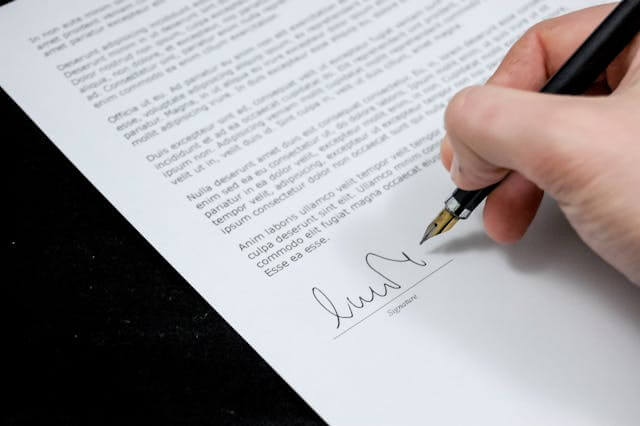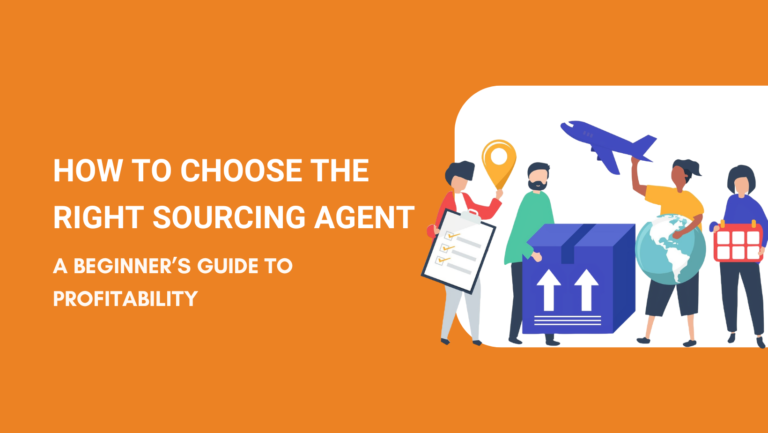Sourcing agents have been gaining popularity as the world retail networks have grown.
Whether it is a physical shop or an online store business, sourcing agents have become key players in product procurement and boosting business efficiency.
That’s why we have brought this definitive guide on sourcing agents, who they are, what they do, and how they can help you with your business.
By the end, you’ll have all the knowledge you need to make an informed decision about working with a sourcing agent.
Let’s jump right into it.
What Is a Sourcing Agent?

A sourcing agent is a third-party service provider that assists businesses in procuring products from suppliers.
For companies that don’t manufacture their own products, sourcing agents simplify the process.
They help by finding, negotiating, and managing supplier relationships, especially when dealing with overseas suppliers.
They’re also referred to as “product sourcing agents” and are essential players in the supply chain, especially for resellers.
Their key role is to streamline the sourcing process and help businesses focus on sales and growth.
Types of Sourcing Agents
Not all sourcing agents operate the same way, and understanding their differences can help you choose the best type for your business. Here are the main types of sourcing agents:
Freelance Sourcing Agents

These are independent agents who work on a contract or freelance basis. Freelance sourcing agents are often cost-effective and offer a more personalized approach.
However, their resources may be limited compared to a larger agency, so they’re ideal for smaller businesses or those sourcing products on a modest scale.
Sourcing Agencies
Sourcing agencies are professional firms with teams of agents who provide a full range of sourcing services.
They typically have more established networks and resources than freelancers, allowing them to handle higher volumes and complex sourcing needs.
Agencies often offer quality assurance, compliance checks, and logistics support, making them a good choice for businesses with larger, ongoing sourcing needs.
Local Sourcing Agents
Local sourcing agents are based in or near the target sourcing region (e.g., China, India).
They have in-depth knowledge of the local market, culture, and business practices, which can be especially beneficial for navigating overseas sourcing.
Local agents are ideal for businesses looking for strong, on-the-ground support and those that prioritize relationships with regional suppliers. Some of them may also specialize in sourcing products for particular niches.
What Services Do Sourcing Agents Provide?

A top-quality sourcing agent typically focuses on five core areas to streamline the product sourcing process and ensure optimal results for their clients.
Here’s a breakdown of the key services a sourcing agent typically provides:
- Supplier Identification and Selection –Sourcing agents identify reliable manufacturers and suppliers who can meet product quality, volume, and pricing requirements. They leverage local networks and industry knowledge to present vetted options.
- Price Negotiation –Using their market insight, sourcing agents negotiate the best pricing on behalf of their clients, balancing cost-effectiveness with quality standards to maximize profitability.
- Quality Control and Inspections –Quality control is a top priority. Sourcing agents perform critical inspections at various stages—such as pre-production, during production, and pre-shipment—to ensure products meet specifications and quality expectations.
- Supply Chain and Logistics Management – Sourcing agents handle logistics coordination to ensure timely shipping. They manage supply chain details, from organizing shipments to handling customs documentation, making it easy for clients to receive goods without hassle.
- Risk Management and Problem Resolution –Experienced sourcing agents proactively address issues like production delays or quality discrepancies. They act as problem solvers, offering solutions to make sure your business runs smoothly.
How to Vet a Sourcing Agent?
While a sourcing agent can bring many advantages, there are also risks if you don’t choose carefully.
Below, we’ve outlined some common risks along with actionable tips on how to vet out the perfect agent for your business.

Some sourcing agents may inflate product prices or charge hidden fees that impact overall costs without transparency.
Solution: Discuss fees openly from the start and ask for a clear, itemized breakdown of costs, covering everything from sourcing and inspections to logistics. A transparent agent will be willing to explain each charge.
2) Quality Issues
A lack of proper quality control or experience with certain products can result in inconsistent or subpar products, ultimately affecting customer satisfaction.
Solution: Check the agent’s quality control processes. Ask about their inspection procedures and ensure they provide regular updates during each stage of production, from pre-production to final inspections. This oversight reduces the risk of quality issues.
3) Supplier Bias
Some agents might have preferred suppliers, leading them to recommend vendors based on relationships or personal gain rather than the client’s best interests.
Solution: Evaluate how the agent selects suppliers. Look for agents who use objective criteria—such as pricing, quality, and lead times—and can present several supplier options with transparent evaluations. Asking them to justify their choice can reveal if they have biases.
4) Poor Communication
Communication gaps can lead to misunderstandings about product requirements, delays, or other logistical issues.
Solution: Test the agent’s communication responsiveness early on by asking detailed questions about your sourcing requirements. Look for agents who respond promptly, clearly, and professionally, as good communication is key to handling timelines and addressing issues.
5) Unreliable Delivery Times

Some sourcing agents may lack the ability to ensure timely deliveries, which can disrupt your inventory and lead to stockouts.
Solution: Vet the agent’s experience in handling logistics by asking about their past projects and success with timely deliveries. Reliable agents should have a logistics plan and connections with reputable shipping partners to ensure smooth, timely shipments.
Additional Tips for Finding a Sourcing Agent
We’ve looked at the risks and solutions when searching for a sourcing agent, but a few extra factors can help turn a good agent into a great one:
Presence and Locations
An ideal agent should be present at multiple locations throughout the country of origin. For example, an agent should have offices and staff to check for the products from nearby places.
For example, if a client wants products that are most abundant in the Yiwu market, the sourcing agent should ideally have its network or employees who are available nearby Yiwu. The same is the case for the Guangzhou market in China.
Exclusive Sourcing Services
Some sourcing agents go beyond just arranging the right products for you. NicheSources is one such example.
Such agents also provide services like worldwide shipping and collaboration with the freight companies in China for quick delivery. Storing products in their warehouse until you ask them to ship is also one of their value-added services.
Do check if the sourcing agent provides dropshipping services if you are into online selling. Other exclusive services include private label and worldwide order fulfillment services, etc.
All of the exclusive sourcing services mentioned above are provided by NicheSources.
Quality Inspection Services

A reliable sourcing agent will conduct on-site quality checks at the manufacturing facility.
If an agent offers factory or product inspections, it’s a strong indicator of their commitment to quality—making them a valuable partner in the sourcing process.
The Pros and Cons of Working with a Sourcing Agent
| Pros of Working with a Sourcing Agent | Cons of Working with a Sourcing Agent |
| Access to Local Expertise: Sourcing agents have local market knowledge and networks, making it easier to identify reputable suppliers. | Added Costs: Hiring a sourcing agent incurs extra fees, which may add up for smaller businesses. |
| Improved Quality Control: Agents perform inspections during various production stages, ensuring quality standards are met before shipping. | Potential for Conflict of Interest: Some agents may favor suppliers they know, which could lead to higher costs or quality compromises. |
| Language and Cultural Bridge: Agents bridge language and cultural gaps, facilitating clearer communication and reducing misunderstandings. | Less Direct Control: Working through an agent means you have less immediate oversight over suppliers and production processes. |
| Time and Cost Savings: Agents handle negotiations, logistics, and inspections, saving you time and possibly lowering costs through their supplier knowledge. | Reliance on Agent’s Network: You may be limited to the agent’s network of suppliers, potentially missing out on better options. |
| Reduced Risk of Fraud: Experienced agents work with vetted suppliers, minimizing the risk of fraud or unreliability. | Inconsistent Communication: Busy agents or those with poor communication skills may cause delays or misunderstandings, affecting your project timeline. |
Process of Sourcing a Product via Sourcing Agent
Sourcing products via an agent can be an effective way to streamline the process, especially when buying from international suppliers.
Here’s a step-by-step guide to help you understand the process.
Step 1: Define What You Need

The first step in sourcing a product is to clearly define what you need. This means knowing your business niche and specifying the products you want to source.
When sourcing from international manufacturers, especially from places like China, it’s crucial to have a clear idea of your product requirements.
The more detailed you are about your needs, the easier it will be for your sourcing agent to find the right suppliers and products that meet your specifications.
Step 2: Write All the Requirements and Specifications
When you have defined which product you want to buy, the next step is to write down the product requirements along with its specifications.
For example, if you’re sourcing men’s hoodies, you need to detail aspects such as fabric type, color options and sizing.
The more specific you are, the better your sourcing agent can match the product to your needs.
Pro Tip
If you’re unsure about certain product details, you can leave those open for the sourcing agent to suggest options.
Simply provide a budget and key criteria, and the agent can propose product ideas that fit within those parameters.
Step 3: Decide on a Budget Range

The next step is to decide the budget for your products. It does not have to be a fixed budget. Ideally, you have to set a budget range for the product.
As there are different qualities for a specific type of product, there will be different manufacturers for every type of product.
You just have to tell the sourcing agent about the minimum to the maximum budget range for the products you want to purchase.
The agent will shortlist the manufacturers who are willing to provide the products within that budget range.
In a typical practice, a sourcing agent will share the quotations of different manufacturers from which you have to choose one.
While allocating a budget range, do not always select the minimum prices. The quality may be compromised in that case. Try to create a good balance between time, cost, and quality.
Step 4: Search and Compare Sourcing Agents
You don’t have to rely on a single sourcing agent at the start. It is always better to have 5 to 10 sourcing agents in your loop so that you can compare the rates and services of each.
Talking to multiple agents will give you the edge of negotiating the terms and conditions with those agents.
If you rely on one sourcing agent, you may face a monopoly and you will not be able to convince that agent to agree on higher services at lower prices or commissions.
Pro Tip: Let sourcing agents know you’re exploring other options. This can encourage them to offer lower commissions or better services.
Step 5: Negotiate
We’ll cover how to negotiate with a sourcing agent in more detail later in this guide. But simply put, when you are done with comparing the rates and services of multiple agents, you should try bringing the top 3 or 4 agents to the negotiation table.
Try showing them that other sourcing agents are charging lower commissions per product.
Share quotations from other agents and sourcing websites to encourage them to match or beat those prices. This can help you secure more services at a better price, ensuring you get the best value for your business.
Step 6: Select the Sourcing Agent
After you have compared the agents and negotiated the rates and service terms with them, it is time to select the sourcing agent.
Simply put, you have to select the sourcing agent who offers a vast range of services at the lowest possible rates.
Try not to pay for the services that you don’t require. For example, if a sourcing agent is offering special factory audits and you don’t require those services, you should not pay a premium for those services.
Pro Tip: Don’t rush it. Take ample time in selecting the sourcing agent because that will largely decide the future of your business.
Step 7: Document All the Terms and Conditions

Once you’ve selected a sourcing agent, make sure to document all the terms and conditions in an agreement.
This will ensure both parties are aligned. If the agent deviates from any agreed-upon terms, you’ll have the document to hold them accountable.
The most important aspects to document include payment terms and timing.
Step 8: Place the Order
After both of you agree on the terms and conditions, you can place the order. Make sure to set a clear deadline to receive your order. If not, you should at least agree upon when the products would be shipped to avoid delays.
Step 9: Follow Up
Follow-up is crucial in ensuring timely delivery. Since sourcing agents may be handling multiple clients, it’s easy for deadlines to slip.
Regular follow-ups help keep your order on track and ensure there are no delays.
Cost of Hiring a Sourcing Agent

There are two main methods that sourcing agents can charge you with. It’s either a fixed amount per order or they can set a percentage of the order value.
Let’s discuss both of these options briefly.
Method 1: Fixed Charges
An agent can set a fixed price for the whole order. For example, they can charge you around $500 to $1000 as a fixed sourcing fee.
This normally happens when the order value is on the lower side.
Method 2: Percentage of the Order Value
This is the most common method of charging clients. The generally accepted percentage for sourcing products from China is around 5-15 percent of the order value.
The exact rate depends on factors such as order size, complexity, and the agent’s expertise.
Tips to Negotiate with a Sourcing Agent
Negotiating with a sourcing agent requires professionalism and strategic communication. Here are some tips to get the best deal:
- Present Yourself as a Professional:Establish yourself as a serious business partner by demonstrating professionalism in all your interactions.
- Communicate Your Business Intentions: Clearly state your long-term goals and your intention to build a lasting relationship with the sourcing agent.
- Leverage Your Research: Show that you’ve done your homework on sourcing agents and you’re also exploring other options. Let them know you understand the industry, which can give you a competitive edge.
- Highlight Past Experiences: If you’ve worked with other agents before, share any negative experiences. Let the agent know that you’re looking for a better partnership, and ask how they plan to avoid similar issues.
- Offer Future Business Potential: Assure the agent that if they meet your expectations, you can become a regular client, which could result in long-term business for them.
Who Needs a Sourcing Agent?
As mentioned earlier, resellers or retailers are the kinds of businesses that need a sourcing agent to arrange the products.
Let’s go into a bit of detail and discuss the businesses that need a sourcing agent.
Following are the segments of businesses that need to hire the services of a souring agent.
1. New Businesses and Startups
If you are just starting your new business, you require a product sourcing agent. As discussed in the previous section, you cannot spend all the time finding the right suppliers for your products.
Most entrepreneurs have a lot of things to do at the same time.
Therefore, it is a good idea for a new business or a startup to hire the services of a professional sourcing agent.
2. Established Businesses
It is not that only new businesses require a sourcing agent. Established businesses also rely heavily on sourcing agents.
They need to do this because they want a continuous supply against their demands. So, to meet this regular demand, they need a reliable source to arrange the supply.
That is why established businesses also require the services of a good sourcing agent.
3. Businesses with Bad Product Experiences
Some businesses or retail networks who tried out to arrange products from direct factories often have experienced. These can be in terms of a wrong product or defective pieces that they received from them.
In such cases, those businesses try to look for trustable sources in the country where the products are coming from.
They need to share the details of the products and they expect the sourcing agents to make sure that they get what they want.
That is why they prefer hiring the services of a product sourcing agent so that they do not meet with any surprises in the future.
4. Special Product Demands

Some people or businesses have special product demands and they are not sure where to find them. That is where the product sourcing agent can help them out.
They just need to share the product details with the sourcing agent and the agent will come up with the solutions.
As a good sourcing agent is already in liaison with many factories manufacturing different products, it does not take much time for a product sourcing agent to find where those special products are made.
5. Supermarts
Supermarts like Walmart, Hyperstar, and Carrefour also require the services of a sourcing agent. That is because they have the demand for certain products in bulk quantities.
Bulk quantity comes with lower checks as all of the products are difficult to be inspected and verified by the factories before dispatching.
So, they give this task to a professional sourcing agent.
6. Amazon Sellers
Amazon has been the center of attention for online shopping for many years. Services like Amazon FBA and Amazon Dropshipping are getting popular day by day.
As Amazon hosts a variety of sellers from different locations and countries, the sellers need to have someone who can help them arrange products to be sold on Amazon.
That is why Amazon sellers rely on sourcing agents to cater to their needs of products.
Relying on the direct manufacturers can be daunting in this case as Amazon has very strict vendor policies.
So, Amazon sellers do not take much risk in sourcing products themselves. Most of them hire the services of a sourcing agent to ensure quality products and timely deliveries.
7. Dropshippers
Dropshipping is a business model in which the online retailers or resellers do not get hold of the products. Rather they are selling someone else’s products on their online store.
That is where the services of a product sourcing agent would be required.
If a dropshipper has regular orders, he would require the services of the best and professional sourcing agent to do this task.
A good sourcing agent like NicheSources makes sure to hold your hand at every step of dropshipping so that you don’t feel alone.
Sourcing Agent vs. Other Sourcing Options

Sourcing Agent vs. Sourcing Company
A sourcing agent is usually an individual or small team that helps businesses find and negotiate with suppliers, offering personalized and flexible services.
They typically charge a fixed fee or a percentage of the order value. On the other hand, a sourcing company is a larger, more formal entity that can handle larger orders and offer additional services like logistics and quality control.
While sourcing companies may be more expensive, they are ideal for businesses with complex needs or higher volume orders.
Sourcing Agent vs. Distributor
A sourcing agent connects businesses with manufacturers but doesn’t take ownership of the products.
They assist with negotiations, pricing, and logistics. A distributor, however, buys products in bulk and resells them to businesses or consumers, taking on inventory risk.
While distributors offer quicker delivery and after-sales services, sourcing agents provide more flexibility and are better suited for businesses looking for specific suppliers rather than pre-purchased inventory.
Sourcing Agent vs. Direct Buying
Direct buying involves purchasing products directly from manufacturers, saving on agent fees but requiring more time and effort to research, communicate, and negotiate terms.
Sourcing agents, by contrast, handle these tasks for you, saving time and offering expert guidance in finding wholesale suppliers.
While direct buying can be cheaper, it involves more risk and effort. In comparison, sourcing agents streamlines the process but comes with additional costs.
FAQs about Sourcing Agent
When Is a Sourcing Agent Right For You?
A sourcing agent is ideal when you want to source products from overseas but lack the time, expertise, or resources to handle it yourself.
They help navigate language barriers, negotiate better terms, and ensure product quality, especially when working with manufacturers in countries like China.
If you’re scaling your business or need niche products, a sourcing agent can streamline the process and reduce risks like fraud or poor quality. They’re also a great choice if you’re new to sourcing and need expert support.
What Should I Ask a Sourcing Agent?
Following are some of the points that you should ask your sourcing agent before selecting them.
- What is their specialty to source the products?
- Which niche do they have the firm grip on to source products from China?
- Do they have relevant experience in sourcing similar products as you require?
- How are they different from other sourcing agents?
- Ask about the number of members in their team.
- Ask about the lead times for the product delivery and about any expected variations.
- Ask how they handle complaints and what happens if the products you received are defective or they are different from what you asked for.
- Ask about customer satisfaction testimonials and reviews.
What Makes a Bad Sourcing Agent?
A bad sourcing agent is one who does not do what you asked for. Following are some of the points that can help you spot a bad sourcing agent.
- Sends defective pieces without checking.
- Misses deadlines and deviated from the commitments frequently.
- Bad at communication.
- Takes commissions from the manufacturers to compromise the quality of the products.
- Not responsive to your queries.
Final Words
A product sourcing agent can either make or break your business. The right partner can streamline your product sourcing, ensure quality control, and help you grow your business faster.
However, working with the wrong agent can lead to delays, poor quality products, and missed opportunities.
Take your time to vet potential sourcing agents, ask the right questions, and select someone who aligns with your business goals.
At NicheSources, we know how important it is to have a reliable sourcing partner. As a top sourcing expert, we offer services that are designed to meet your business needs.
Ready to get started? Contact us today for a free quote, and our expert team will help you find the best products to grow your business.

